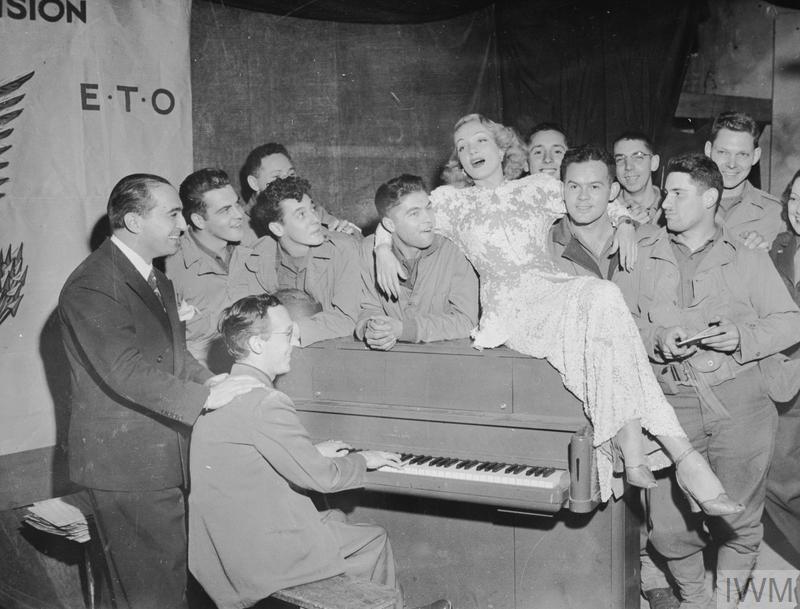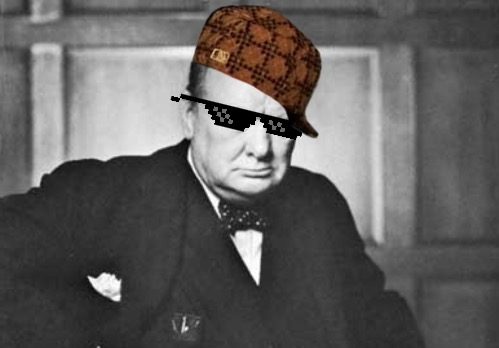There is nothing manly in throwing up your hands.
Like a Soldier

Marlene Dietrich was good for morale.
Stolberg was a German border town. American bombing and artillery had destroyed parts of it, and now Americans occupied it. It was late in 1944. Walking down Stolberg’s streets, accompanied by a U.S. Army escort, was Marlene Dietrich, a famous movie star whose USO uniform covered what were often referred to as “the loveliest legs in Hollywood.”
A local housewife recognized her, and, according to Bruce Henderson in Sons and Soldiers, soon Dietrich was surrounded by “a crowd of admiring women and children.” There were practically no men in the town; and food was almost as scarce as men. Some “of the women went house to house collecting baking ingredients…[and] made a simple cake, which they presented to her as she departed.” Retelling the story a few months later, the housewife was moved to tears: “[Dietrich] said that simple Stolberg pastry was more memorable than the gourmet petits fours served to her in the salons of Paris. It had made her believe that many Germans accepted and even supported her for…trading Nazi tyranny for freedom in America.”
Marlene Dietrich was born in Berlin in 1901. In 1930, her performance in the film The Blue Angel made her a star. Her Austrian-born director encouraged her to move to Hollywood, where, in rapid succession, she starred in six films for Paramount Pictures, one of which earned her an Oscar nomination. Paramount presented her as a German answer to MGM’s Swedish star Greta Garbo. Many more films would follow.
While Dietrich was becoming the most famous German actress in America—and throughout the world—the Nazis were coming to power in her native Germany. She was performing in London in 1937 when Nazi Party officials approached her, offering lucrative contracts if she came back to Germany as the leading film star of the Third Reich. But she was staunchly anti-Nazi and refused their offer.
Her mother and sister still lived in Berlin, but she applied for U.S. citizenship and became an American citizen in 1939 as World War II started in Europe.
From the beginning, she devoted herself to America’s cause. With Billy Wilder and other Europeans who had come to Hollywood, she created a fund to help Jews and dissidents escape from Nazi Germany. When America entered the war in December 1941, she toured the country selling war bonds and performing for tens of thousands of troops. She served coffee and danced with American servicemen in the Hollywood Canteen off Sunset Boulevard, open six days a week and staffed by stars and other volunteers from the entertainment industry. Entry, food, drink, and entertainment were free for anyone wearing a uniform.
She put on more than 500 performances throughout the war on USO tours for Allied troops in North Africa, France, Italy, and Germany. She slept in tents, performed fighting off bouts of influenza and suffering from frostbite, often on the front lines. She took so many risks that her fellow performers joked that “she was always trying to get us killed.” The Office of Strategic Services (OSS) asked her to record songs and interviews in German to be broadcast to Axis troops. Among the songs she recorded was “Lili Marleen,” a favorite of soldiers on both sides. It was reported that her broadcasts were as devastating to German morale as a bombing campaign. “Wild Bill” Donovan, head of the OSS, personally thanked her for her services. The Nazis, meanwhile, branded her a traitor to Germany.
After the war, she continued her successful film and stage career through to the 1970s. But she remembered the performances she gave to Allied troops as “the only important thing” she ever did.
In 1947, she was awarded the American Medal of Freedom “for her extraordinary record entertaining troops overseas during the war.” She said that this was the accomplishment she was most proud of in her life.
Dietrich lived the last decade of her life alone in an apartment in Paris and died there at the age of 90 in 1992. Her funeral ceremony at the Catholic Church of La Madeleine was attended by over 1,500 mourners, including ambassadors and dignitaries from several countries; thousands gathered outside. Her closed coffin was draped in the French flag. At the foot of the coffin, France’s Legion of Honor and the American Medal of Freedom were displayed, military style. The officiating priest said, “She lived like a soldier and would like to be buried like a soldier.” But she would not be buried in Paris.
To the surprise of many, Dietrich had made provision in her will that she was to be buried in Berlin next to the grave of her mother, near the house where she was born. Even then, nearly half a century after the war, some in Germany still considered Marlene Dietrich a traitor for joining Nazi Germany’s enemies in World War II. But there were many more who, like the women of Stolberg, thought that the only way to be true to Germany was to fight the Nazis as Marlene Dietrich did. Like a soldier.
The American Mind presents a range of perspectives. Views are writers’ own and do not necessarily represent those of The Claremont Institute.
The American Mind is a publication of the Claremont Institute, a non-profit 501(c)(3) organization, dedicated to restoring the principles of the American Founding to their rightful, preeminent authority in our national life. Interested in supporting our work? Gifts to the Claremont Institute are tax-deductible.
The coming great awakening.
It’s amusing to watch the Biden circus but frightening to consider that nobody’s in charge.
An underappreciated film showcases post-war masculine anxieties.
Not all speech is created equal.
We must remember no life is fodder for revolutionary compliance.






